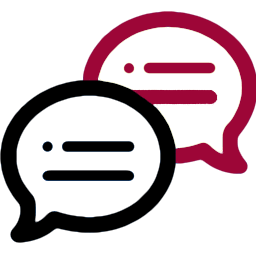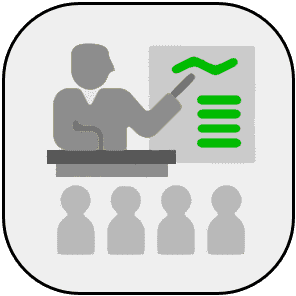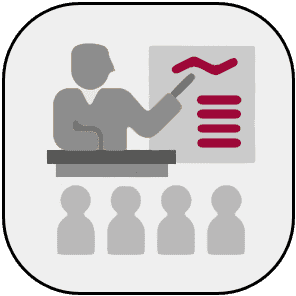Emotional Intelligence history
When psychologists began to write and think about intelligence, they initially
focused on cognitive aspects, such as memory and problem-solving. However,
some researchers recognized the importance of non-cognitive aspects early
on:
-
Robert Thorndike was writing about social intelligence
in 1937,
-
David Wechsler defined intelligence as the aggregate
or global capacity of the individual to act purposefully, to think rationally,
and to deal effectively with his environment (Wechsler, 1958, p. 7). Already
in 1940 Wechsler referred to non-intellective as well as intellective elements
(Wechsler, 1940), by which he meant affective, personal, and social factors.
Furthermore, already in 1943 Wechsler was proposing that the non-intellective
abilities are essential for predicting ones ability to succeed in life.
-
Howard Gardner began to write about multiple intelligence
in 1983. He proposed that intrapersonal and interpersonal intelligences
and the type of intelligence (typically measured by IQ and related tests)
are equally important.
-
Salovey and Mayer actually coined the term emotional
intelligence in 1990. They described emotional intelligence as "a form of
social intelligence that involves the ability to monitor own and others
feelings and emotions, to discriminate among them, and to use this information
to guide ones thinking and action" (Salovey & Mayer, 1990). Salovey and
Mayer also initiated a research program intended to develop valid measures
of emotional intelligence and to explore its significance.
In doing the research for his first book, Daniel Goleman
became aware of Salovey and Mayers work in the early 1990s. Being trained
as a psychologist at Harvard, where he worked with David McClelland, Goleman
wrote the popular bestseller "Emotional Intelligence" (1995), in which he
offered the first ' proof' that emotional and social factors are important.
Five Domains of Emotional Intelligence
Goleman in 1995 agrees with Salovey's Five Main Domains of
Emotional Intelligence (p. 43)
-
Knowing one's emotions. Self-awareness, recognizing a feeling
while it happens.
-
Managing emotions. The ability of handling feelings so they
are appropriate.
-
Motivating oneself. Marshalling emotions in the service
of a goal.
-
Recognizing emotions in others. Empathy, social awareness.
-
Handling relationships. Skill in managing emotions in others.
Four domains of Emotional Intelligence
More recently, Goleman favors only Four Domains of EI. The
4 domains have 19 categories, as described in his 2002-book "Primal
Leadership". 2 extra categories were added by the
Hay Group:
-
Self-awareness (Emotional Self-Awareness. Accurate Self-Assessment
and Self Confidence)
-
Self-management (Emotional Self-Control. Transparency (Trustworthiness).
Adaptability. Achievement Orientation. Initiative. Optimism.
Conscientiousness)
-
Social awareness (Empathy. Organizational Awareness. Service
Orientation)
-
Relationship management (Inspirational Leadership. Influence.
Developing Others. Change Catalyst. Conflict Management. Building Bonds.
Teamwork and Collaboration. Communication)
An important thing to understand is that - according to Goleman
- these EI competencies are not innate talents. They are learned abilities.
IQ or EI?
According to some scientists, IQ by itself is not a very good
predictor of job performance. Hunter and Hunter (1984) estimated that at best
IQ accounts for about 25 percent of the variance. Sternberg (1996) has pointed
out that studies vary and that 10 percent may be a more realistic estimate.
In some studies, IQ accounts for as little as 4 percent of the variance. In
a recent meta-analysis examining the correlation and predictive validity of
EI when compared to IQ or general mental ability, Van Rooy and Viswesvaran
(2004) found IQ to be a better predictor of work and academic performance
than EI. However, when it comes to the question of whether a person will become
a "star performer" (in the top ten percent, however such performance is appropriately
assessed) within that role, or be an outstanding leader, IQ may be a less
powerful predictor than emotional intelligence (Goleman 1998, 2001, 2002).
IQ and EI: pure types
According to Goleman, IQ and EI should not be regarded as
competencies with an opposite direction. They are rather separate competencies.
People with a high IQ but low EI (or the opposite) are, despite the stereotypes,
relatively rare. There is a correlation between IQ and some aspects of EI.
The stereotypes (pure types) are:
-
(Pure) High-IQ male. He is typified - no surprise - by a
wide range of intellectual interest and abilities. He is ambitious and productive.
Predictable and dogged. And untroubled by concerns about himself. He also
tends to be critical and condescending. Fastidious and inhibited. Uneasy
with sexuality and sensual experience. Unexpressive and detached. And emotionally
bland and cold.
-
(Pure) High-EI male. He is socially poised. Outgoing and
cheerful. Not prone to fearfulness or worried rumination. He has a notable
capacity for commitment to people or causes, for taking responsibility,
and for having an ethical outlook. He is sympathetic and caring in his relationships.
His emotional life is rich, but appropriate. He is comfortable with himself,
others, and the social universe he lives in.
-
(Pure) High-IQ female. She has the expected intellectual
confidence. Is fluent in expressing her thoughts. Values intellectual matters.
And has a wide range of intellectual and aesthetic interests. She tends
to be introspective. Prone to anxiety, rumination, and guilt. And hesitates
to express her anger openly.
-
(Pure) High-EI female. She tend to be assertive and expresses
her feelings directly. And feels positive about herself. Life holds meaning
for her. She is outgoing and gregarious. And expresses her feelings appropriately.
She adapts well to stress. Her social poise lets her easily reach out to
new people. She is comfortable enough with herself to be playful, spontaneous,
and open to sensual experience. She rarely feels guilty, or sinks into rumination.
Assessing and measuring Emotional Intelligence
Instruments used for measuring Emotional Intelligence
-
EQ-I (Bar-On, 1997): a self-report instrument to
assess those personal qualities that enabled some people to possess better
emotional well-being than others.
-
Multifactor Emotional Intelligence Scale (Mayer,
Caruso, & Salovey, 1998): a test of ability where the test-taker performs
a series of tasks that are designed to assess the persons ability to perceive,
identify, understand, and work with emotion.
-
Emotional Competence Inventory (ECI) (Goleman, 1998):
a 360 degree instrument, where people evaluate the individuals within an
organization (Individual Feedback Reports). Or the organization as a whole
(Work Force Audits). These audits can provide an organizational profile
for any size group within the company. The Emotional Competence Inventory
works with the 19/21 competencies described above (See under Four Domains
of EI).
Book: Daniel Goleman
- Emotional Intelligence
|
Forum discussions about Emotional Intelligence.

|
3 Approaches Towards Emotional Intelligence
In an article “Human Abilities: Emotional Intelligence” Mayer, Roberts and Barsade describe the theoretical approaches to Emotional Intelligence (EI), distinguishing the Specific-Ability Approach, the...
 13 |

|
Emotions versus Reason
An emotion is an automatic response, an automatic effect of our value premises - therefore it is an effect not a cause. There is no necessary clash or dichotomy between man's reason and his emotions, ...
 13  3 comments |

|
How you Should Manage Yourself (Drucker)
Peter Drucker (1999) emphasises several components of effective self-management. The underlying principle of one-own’s self management is identification and development of one’s STRENGTHS instead of f...
 10 |
|
🔥
|
Emotional Behaviors of Leaders
Learning and embracing the domains and categories of Emotional Intelligence (EI) is critical to outstanding leadership. Important from my perspective are the Conversational Intelligence and Emotional ...
 9  9 comments |

|
Understanding Emotions Logically
Through "social intelligence", which is about observing nonverbal behavior and understanding emotions, you can learn to differentiate between emotions, for example between a genuine and a fake smile, ...
 3  1 comments |
|
|
|
Courses about Emotional Intelligence.

Beginners Course
|

Advanced Course
|

Course for Experts
|
|
|
|
The best, top-rated topics about Emotional Intelligence. Here you will find the most valuable ideas and practical suggestions.
|
🥈
|
Intelligence of the Heart
I shall begin with some some real life incidents that happened to me.
Incident 1: the girl standing up for her friend.
One day I was traveling in a general compartment of a train. To be precise i...
 55  79 comments
|

|
Emotional Intelligence versus IQ
I think we can link EQ with wisdom and IQ with knowledge. One can be knowledgeable with others knowledge but one cannot be wise with others wisdom.
That effectively leaves EQ to the genes and IQ to t...
 13  6 comments
|

|
Where does Wisdom come from?
Why are some wiser? We see educated people but unwise. We see less literate people but wise. Is it one's thoughts which make someone wise/unwise? Or is it something else? Where does the wisdom come fr...
 10  5 comments
|

|
Emotional Intelligence = Maturity?
Would Emotional intelligence not be the same as maturity. Ordinarily, maturity comes with age, but sometimes you find a young person who behaves or handles situations with more maturity than his chr...
 8  4 comments
|

|
Cleaning our Emotions
The important thing about emotional intelligence is self awareness. It starts with knowing oneself, and with cleaning all those feelings that have blurred our most beautiful feelings of love, compassi...
 8  4 comments
|

|
How can EQ and IQ be Combined?
Of course, EQ and IQ can be combined in one individual. But how can we assess the extent to an individual is successful in achieving this?
The potential of an individual can briefly be described by t...
 5  7 comments
|
|
|
|
Advanced insights about Emotional Intelligence. Here you will find professional advices by experts.

Consultancy Tips
|

Teaching Tips
|

Practical Implementation Tips
|
|
|

|
Theory of Multiple Intelligences Skills Development
In 1983, Howard Gardner proposed the Theory of Multiple Intelligences. The theory suggests that intelligence is not a s...
|

|
The Brain's Lymbic System is an Open-loop System. The Phenomenon of Mirroring EI Awareness
A closed-loop system is self-regulating, it is not influenced by things outside of the system.
An open-loop system depe...
|

|
How to Develop Your / Someone's Emotional Intelligence? Emotional Intelligence Development, Coaching, Mentoring
In order to develop Emotional Intelligence, Steve Hein suggests adopting following habits:
- Become emotionally literat...
|

|
How to Prepare for a Critical Situation Leadership, Crisis Management, Preparing for a Major Event, Preparing for a Pivotal Moment, Coaching, Negotiating
When people are connected to their core self and values, they are more likely to achieve their best performance as they ...
|

|
How to Assess Your / Someone's Social Intelligence and Leadership Skills Social Intelligence, Leadership Development
In their article "Social Intelligence and the Biology of Leadership" (HBR, September 2008), Daniel Goleman and Richard B...
|

|
Limitations of Emotional Intelligence EI Consulting, Coaching, Mentoring, Measuring Emotional Intelligence
Some significant limitations of Emotional Intelligence mentioned by academics as well as professional are as follows:
-...
|

|
The Importance of Self-awareness for Project Managers Professional Development, Personal Development, Project Management, Ethics, Beliefs, Values, Emotional Intelligence
Self-awareness is how an individual consciously knows and understands their own character, feelings, motives, and desire...
|

|
Emotional Style and Leadership Performance Leadership Coaching, Understanding the Mechanisms behind Leadership
Goleman made another contribution to the study of successful leadership. This represented a deeper analysis of earlier r...
|

|
How to Develop Better Relational Skills? Human Resources, Leadership
Although it is not necessary to be interested in or skilled at all four dimensions of relational work in order to succee...
|

|
Thorndike on Intelligence 1920 3 distinct types
E.L. Thorndike (1920: Intelligence and its uses) distinguished between three distinct types of intelligence:
1. Abstrac...
|

|
Reasons and Remedies to Dissonance in Leaders Primal Leadership, Emotional Intelligence, Stress, Cognitive Dissonance, Resonance
In today’s constantly changing, challenging and demanding environment, it is hard for leaders to remain effective and re...
|

|
Bar-On Measure of EQ 1985 Measuring EQ
R. Bar-On (1985: The development of an operational concept of psychological well-being) mentions 5 interdependent dimens...
|

|
History of Emotional Intelligence Emotional Intelligence, ESCI Model
According to the user guide for accredited practitioners of the Emotional and Social Competency Inventory (ESCI) Model, ...
|
|
|
|
Various sources of information regarding Emotional Intelligence. Here you will find powerpoints, videos, news, etc. to use in your own lectures and workshops.

|
Facial Expressions Emotion Recognition
Study by Hillary Anger Elfenbein presents data on training to improve the accuracy of judging facial expressions of emot...
|

|
EI: What it is and Why it Matters History, Current Interest, Value of EI
History of the Emotional Intelligence concept as an area of research. Description how it has come to be defined and meas...
|

|
Applying EI to a Job Interview Job Interviews
10 ways to apply Ei to a job interview. By M.Peer Mohamed Sardhar...
|

|
22 Guidelines for Best Practices Training EI at Work
22 guidelines for best practice in the area of training and developing social and emotional competencies at work
These ...
|

|
Emotional Intelligence Conflict Management
Study by M. Afzalur Rahim a.o. investigates the relationships of the five dimensions of emotional intelligence: self-awa...
|

|
Emotional Intelligence - A Leader’s Primer Emotional Intelligence
Presentation on meaning of 4 EI Competencies (Self-Awareness,
Self-Management, Social Awareness, Relationship Managemen...
|

|
Interview Goleman on Emotional Intelligence Introduction to Emotional Intelligence
According to Daniel Goleman emotional intelligence refers to how well we handle ourselves and relationships.There are fo...
|

|
NLP: The 6 Neurological Levels 6 layers to view at the reality of a person or issue
Neuro Linguistic Programming (NLP) is used increasingly by businesses and individuals in HR, marketing, sales and organi...
|

|
Emotional Intelligence: Job Performance and Career Success Emotional Intelligence, Management Development, Career Management, Career Assessments
Presentation about Emotional Intelligence includes the following sections:
1. Background
1.1 Old versus New Career Par...
|

|
The Influence of Emotions and Moods on Decision-Making and Entrepreneurship Decision Making, Emotional Intelligence, Entrepreneurship, Cognitive Bias
This presentation is about emotions in decision-making, thereby paying specific attention to Emotional Intelligence
1. ...
|

|
Howard Gardner's Eight Intelligences Intelligences Research
A presentation about Gardner, one of the four authors mentioned as inventors of emotional intelligence. A more detailed...
|

|
Advice to Improve Your Emotional Intelligence Improve Your Emotional Intelligence
First five top tips out of 55 for developing emotional intelligence. By Doug Constant. Remaining 50 tips available for $...
|

|
Common Negative Feelings EI Education
Comprehensive list of around 100 negative feelings in 6 categories....
|

|
Recognizing Stress in Yourself and Your People Coping with Stress, Avoiding Stress, Emotional Intelligence, Stress Management
What is stress?
Stress is a feeling of being overloaded, wound-up and worried.
How can you recognize stress in yours...
|

|
Practical Communication Tips for Managers Management Skills, Leadership Skills, Management Development, Leadership Development, Situational Leadership
As manager you need to combine professional expertise and experience with specific character traits, interpersonal and c...
|

|
Managing Psychological Well-being in Workplaces Organizational Commitment, Performance Management, Stress Management, Workplace Management
This presentation elaborates on the developing of efficient workplaces through mental well-being. The presentation inclu...
|

|
Peer and Co-worker Relationships Relationship Management, Emotional Intelligence, Coaching, Emotional Work, Relationship at Work, Employee Relationships
This presentation is about the relationship between peer and co-workers, and includes the following sections:
1. Nature...
|

|
Emotions In Finance and Economics Decision Making, Behavioral Economics, Behavioral Finance
Detailed presentation about the role of emotions in making decisions. The presentation includes the following sections:
...
|
|
|
|
Useful tools regarding Emotional Intelligence.

News
|

Videos
|

Presentations
|
| |

Books
|

Academic
|

More
|
|
|
|
Compare with Emotional Intelligence:
Cultural Intelligence
| Whole Brain Model
| Johari Window
| Attribution Theory
| Leadership Styles
| Framing |
ERG Theory |
Path-Goal Theory |
4 Dimensions of
Relational Work |
Competing Values Framework
| Hierarchy of Needs
| Six Change Approaches
| Seven Habits |
PAEI |
Action Learning |
Team Management
Profile
Return to Management Hub: Communication & Skills | Ethics & Responsibility | Human
Resources | Leadership
More Management Methods, Models and Theory
|
|
|













